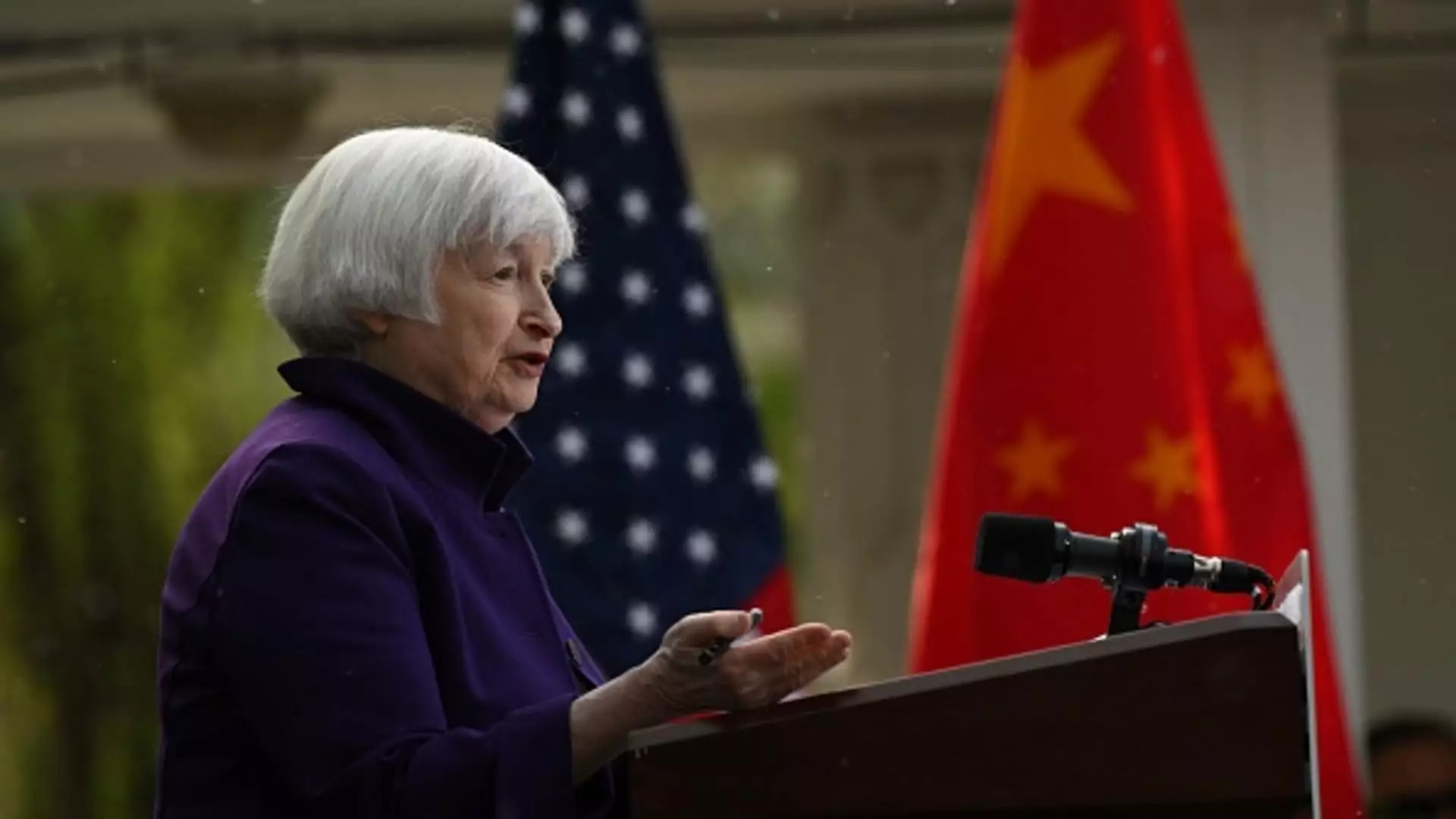U.S. Treasury Secretary Janet Yellen recently highlighted the importance of future discussions between the U.S. and China regarding Beijing’s need to change its policy on industry and the economy. With plans to underscore the need for a shift in policy, Yellen emphasized the significance of addressing issues that impact global trade and economic stability. This call for change comes after hours of discussions with Chinese officials, including the Vice Premier, during her trip to China.
China’s industrial overcapacity has raised concerns internationally, as it often leads to excess production of goods that undercut global competitors on price. This practice is viewed as unfair competition, especially when coupled with heavy subsidies that distort market dynamics. Despite China’s claims that accusations of “overcapacity” are groundless and that innovation is the real driver behind their economic growth, other countries remain skeptical. As a result, there is a growing demand for anti-subsidy and anti-dumping investigations on Chinese manufacturing to ensure a level playing field in the global market.
Yellen also addressed the challenges associated with boosting domestic demand in China. High costs of living, such as housing and healthcare, have led many Chinese citizens to prioritize saving over spending, which in turn, affects consumption patterns. By suggesting that China could support retirement or children’s education to balance demand and supply dynamics, Yellen proposed a way to address this issue. However, she acknowledged that resolving these complex economic challenges would take time and require multi-faceted approaches.
Importance of Bilateral Communication
During her meetings with top Chinese officials, including Premier Li Qiang and Vice Premier He Lifeng, Yellen stressed the importance of open and direct communication between the U.S. and China. She highlighted the need to address differences and engage in tough conversations to make progress in the bilateral relationship. Both sides agreed to exchange information on economic tools, particularly in the context of national security concerns. By committing to regular communication and avoiding surprises, Yellen emphasized the need for transparency and cooperation in shaping economic policies.
Agreements on Economic Cooperation
Following the meetings between U.S. officials and their Chinese counterparts, agreements were made to intensify exchanges on balanced growth in domestic and global economies. Additionally, plans were set in motion to establish Joint Treasury-PBOC Cooperation and Exchange on Anti-Money Laundering to combat illicit finance and financial crime. While both sides expressed concerns and highlighted different priorities, the overall tone of the discussions was described as constructive. Maintaining communication channels and addressing issues related to financial stability and anti-money laundering were seen as positive steps towards enhancing the economic relationship between the two countries.
U.S. Treasury Secretary Janet Yellen’s recent trip to China underscored the need for policy changes to address key economic challenges and promote a more balanced and transparent global trade environment. By engaging in open dialogue and cooperation, both the U.S. and China can work towards resolving differences and fostering economic growth that benefits the broader international community.

Leave a Reply